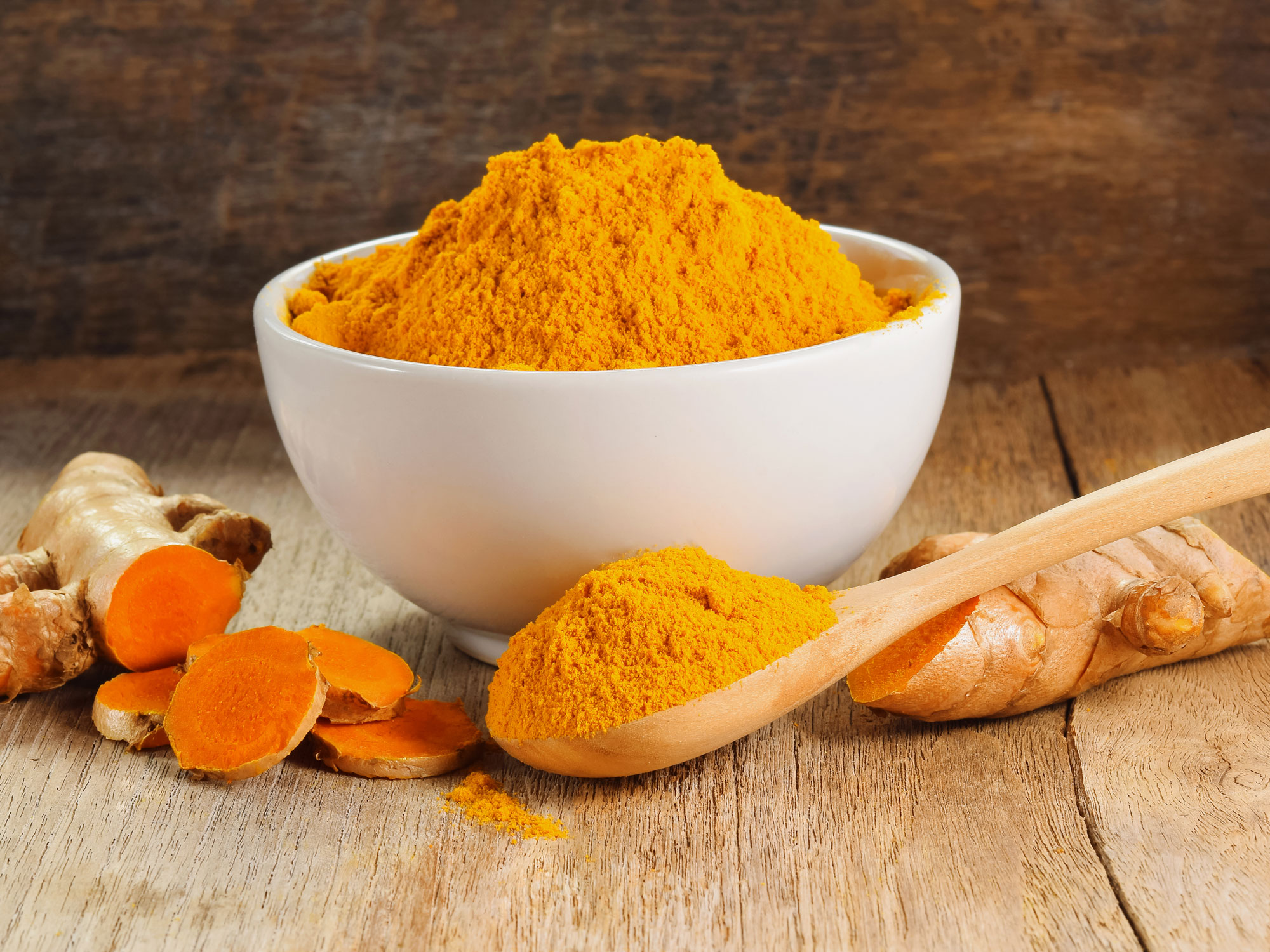Get Easy Health Digest™ in your inbox and don’t miss a thing when you subscribe today. Plus, get the free bonus report, Mother Nature’s Tips, Tricks and Remedies for Cholesterol, Blood Pressure & Blood Sugar as my way of saying welcome to the community!
That time curcumin cured cancer…

You may have heard about Dieneke Ferguson. Dieneke is a 67-year old British woman who overcame blood cancer by taking curcumin, a compound from turmeric.
Dieneke’s story is pretty amazing. She was diagnosed with myeloma, a type of blood cancer, in 2007. She had three rounds of chemotherapy and four stem cell transplants. But nothing worked. Even worse, she developed side effects from the treatment, like memory problems and collapsed vertebrae in her spine.
After Dieneke tried all the treatments her doctors had to offer, she was at a loss for what to do. That’s when she decided to try curcumin supplements. She started taking a curcumin supplement every evening, and five years later Dieneke’s cancer cell count is insignificant.
Now, it’s rare for someone with myeloma to live for five years, let alone tame the disease in that time. That’s why doctors were amazed by Dieneke’s story. In fact, they were so amazed, they published her story in the British Journal of Medicine.
But however amazing Dieneke’s story is, it’s just one woman’s experience. And you may be wondering… what are the chances that curcumin supplements could help cure or prevent cancer for other people?
Luckily, there’s been some research on the subject. And so far, the results seem promising…
How curcumin fights cancer
If you’re wondering what science supports curcumin’s cancer-fighting reputation, here’s a rundown of what we know…
There have been a lot more laboratory and animal studies on curcumin than there have been human studies. In one study, rats who were given turmeric didn’t develop colon, stomach or skin cancer, even after they were exposed to cancer-causing substances. Turmeric has also been shown to stop tumor cells from reproducing in a laboratory setting.
Several studies have shown that curcumin can help people with pancreatic cancer, one of the deadliest types of cancer. These studies show that curcumin could inhibit the spread of the disease and increase the effectiveness of chemotherapy.
Studies show that curcumin effects the body in a number of ways that could explain its ability to fight cancer. It eases inflammation (and as you know, inflammation fuels cancer). It boosts the power of a detoxifying enzyme, which helps your body filter out some of the bad, cancer-causing stuff it comes across daily. It also has antioxidant properties that fend off free radicals and the DNA damage they cause.
But FYI…there is some evidence that curcumin can interfere with chemotherapy for people with breast cancer. So keep that in mind.
Should you try curcumin for cancer prevention?
It’s obvious curcumin has cancer-fighting potential. That means, whether it can cure other people who already have cancer or not, it certainly seems worth trying for prevention.
Curcumin supplements are safe, although they can contribute to gastrointestinal issues in some people. They can also interfere with certain medications. So if you’re on meds, check with a trusted healthcare professional before you start popping curcumin supplements daily.
But once you have the green light, you can safely add curcumin supplements to your vitamin regimen. Dieneke took 8 grams of curcumin per day on an empty stomach. But she built up to that amount slowly, starting at 1 gram and working up to 8 grams over the course of a month. Dieneke also took curcumin supplements that contained bioperine, a compound from black pepper that helps your body absorb curcumin.
For those of you who prefer to get your healthy compounds through food, you can certainly cook with turmeric or enjoy a glass of golden milk to get your curcumin. But it would be impossible to get as much curcumin as Dieneke did solely through food. So if you’re worried about cancer prevention, curcumin supplements are a safer bet.
UPDATE: Sadly, Dieneke Ferguson passed away from ovarian cancer on October 12, 2020, at the age of 70 — an incredible 13 years following her myeloma diagnosis.
Editor’s note: Discover how to live a cancer prevention lifestyle — using foods, vitamins, minerals and herbs — as well as little-known therapies allowed in other countries but denied to you by American mainstream medicine. Click here to discover Surviving Cancer! A Comprehensive Guide to Understanding the Causes, Treatments and Big Business Behind Medicine’s Most Frightening Diagnosis!
Sources:
- How curry spice helped a dying woman beat cancer: Sufferer, 67, turned to kitchen cupboard staple turmeric after five years of failed treatment — Daily Mail. Retrieved January 18, 2018.
- Details of the type of curcumin taken by Dieneke Ferguson — Hidden Art. Retrieved January 18, 2018.
- Long-term stabilisation of myeloma with curcumin — BMJ Case Reports. Retrieved January 18, 2018.
- Turmeric — Memorial Sloan Kettering Cancer Center. Retrieved January 18, 2018.
- Ravindran, et al. “Curcumin and Cancer Cells: How Many Ways Can Curry Kill Tumor Cells Selectively?” — The AAPS Journal. 2009 Sep; 11(3): 495–510.
- Kanai “Therapeutic applications of curcumin for patients with pancreatic cancer.” — World Journal of Gastroenterology. 2014 Jul 28; 20(28): 9384–9391.
- Could a turmeric extract help to treat pancreatic cancer? — Medical News Today. Retrieved January 18, 2018.
- Bimonte, et al. “Curcumin AntiCancer Studies in Pancreatic Cancer.” — Nutrients. 2016 Jul; 8(7): 433.












